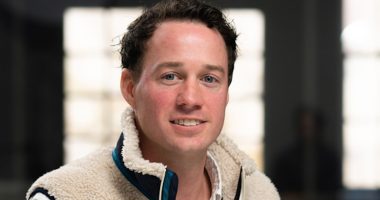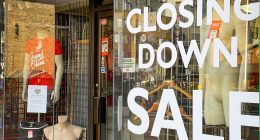
Opinions expressed by Entrepreneur contributors are their own.
LGBTQ people are at higher risk of welfare and economic insecurity — and the problem has worsened during the pandemic — according to responses recently published by the United States Census.
Fortunately for us, there’s an economic equalizer sitting right at our feet, and its name is entrepreneurship. Most of us think of owning a business as a lofty target that requires vision and capital, but even a side hustle can help you learn the ropes of self-employment, get yourself out of a financial rut and craft the career of your dreams.
When you know how to nurture relationships, make sales and deliver great client experiences, you can go into business for yourself and augment your income while also showing up authentically along the way. Entrepreneurship requires a learning curve, but many LGBTQ people welcome the landscape of lifelong learning: According to a new study, LGBTQ people — especially gay men — tend to perform higher academically and pursue more advanced degrees.
Have no idea where to start? Neither did I seven years ago. Before owning a marketing consultancy, I was studying classical music and going out of my way to have absolutely nothing to do with business. It’s normal to change careers and even industries on a regular basis; know that your propensity to learn, develop and grow will become one of your most useful tools as you venture into the unknown.
Related: How To Avoid Rainbow-Washing In Your Pride Marketing Efforts
All LGBTQ people should learn the basics of entrepreneurship. Here are four reasons why.
Entrepreneurship helps you live with no regrets
In a recent interview for Bloomberg, bestselling author Dan Pink discussed the results of his World Regret Survey, which had more than 16,000 respondents. The survey trends revealed some of the biggest career regrets people had.
One of the most consistent regrets, unsurprisingly, was being too afraid to take risks. In that data, however, I found one respondent’s answer particularly interesting: The professional had started a business and failed, but he felt at peace with his decision, because now he knew he had at least tried and didn’t have to wonder anymore about what might have been. Too often, professionals avoid going after what they really want in life because they’re too afraid of failure.
Whether you want to have a side hustle that generates $50 a month or a corporation that does $5 million a month, learning the essentials of entrepreneurship will help you live without regret and sharpen professional skill sets that will serve you for years to come.
Related: 18 Entrepreneurs Share Their Biggest Business Regrets
Entrepreneurship helps you slay perfectionism demons
In his book The Velvet Rage, clinical psychologist Alan Downs notes that shame around being gay is a primary performance driver for gay men. Downs assigns three phases to this coming-out process:
-
Phase 1: Not yet being out of the closet
-
Phase 2: Coming out — but then relying on high performance as an overcompensation trigger
-
Phase 3: Reaching a stage of full self-acceptance and self-love
The second stage is a brutal holding pattern that many of us never escape. And this desire to overcompensate doesn’t only apply to gay men or LGBTQ people; millions of professionals struggle to get their career dreams off the ground simply because the “looking bad” phase is too intimidating and demoralizing to endure.
These days, we are bombarded with stories of massive entrepreneurial success. Remember that everyone good at something was once bad at it, often the “looking bad” stage plays out in the public eye. Legendary LinkedIn co-founder Reid Hoffman once noted that “If you’re not embarrassed by the first version of your product, you’ve launched too late.”
Launch before you feel ready and make mistakes along the way — especially in public. This approach helps you discover the vocational approaches and passions that truly excite you.
Entrepreneurship leads to sustainable equity and wealth
According to the LGBTQ Data & Demographics report published by UCLA’s Williams Institute, LGBTQ people are more likely to be uninsured, experience food insecurity and have an annual income under $24,000. Additionally, more LGBTQ millennials are making important financial decisions with regard to family planning, according to Family Equality’s LGBTQ Family Building Survey:
-
63% of LGBTQ millennials want to expand their families either by becoming first-time parents or having additional children
-
48% of LGBTQ millennials are in an active family planning stage, such as surrogacy or adoption, a percentage that is nearly equal to non-LGBTQ millennials (55%)
-
Nearly two-thirds of LGBTQ millennials engaged in family building efforts plan to use options other than intercourse, such as assisted reproductive technology, foster care or adoption
Raising kids can get expensive real quick! This is another reason to consider establishing a business; it creates a slow, steady flywheel that can move you toward lifelong wealth and financial independence for your family.
Cryptocurrency, real estate and salary negotiation get the lion’s share of attention when it comes to “how to get rich” content, but a profitable business can give you incredible returns and even early retirement if you so choose. Billionaire Mark Cuban calls this the “knowledge advantage”: If you know an industry well, an investment into a business in that industry will be wiser than blind stock purchases.
Related: The One Investing Tip From Billionaire Mark Cuban That’s Perfect For Entrepreneurs
This isn’t about building a business so that you can bathe in gold doubloons or take selfies on a yacht. We want to build financial independence so that we have more freedom, stability and impact in our lifetimes — and the lifetimes of our children. Owning a business, big or small, helps you create wealth in a way that is protected from office politics or other variables outside your control.
As a wise woman once said: “Best revenge is your paper.” Most people don’t launch with a formal business plan or an advisory board on day one; they get scrappy, validate their value proposition and fill in the details later.
Entrepreneurship helps you discover who you really are
One thing no one tells you when you start a side hustle or business is that your own personality traits and tendencies begin showing up in day-to-day operations in a magnified way. Your strengths get even stronger and carry you forward for miles, whereas your weaknesses will nag and sabotage you like never before. Entrepreneurship quickly reveals who you *really* are in practice and in the world — not just who you say you are.
A recent report from Gallup noted that 7.1% of adults identify as LGBTQ, a pronounced increase in acknowledgement from the same report’s 2012 figure of 3.5%. We’re visible and activated and more honest than ever before about who we truly are; now it’s time to channel that energy and tenacity into something that can truly serve both ourselves and one another.
Have you always wanted to try your hand at freelancing, speaking or having a physical product? Educate yourself every day about what it would take to bring that dream to life — and then remember to take action on this education and measure your results. You might be surprised to see what unfolds.
LGBTQ people should learn entrepreneurship. By bringing the locus of control over your career into your corner, you become empowered and inspired to do what it takes for your career to represent your fullest, proudest, most expressive self.








